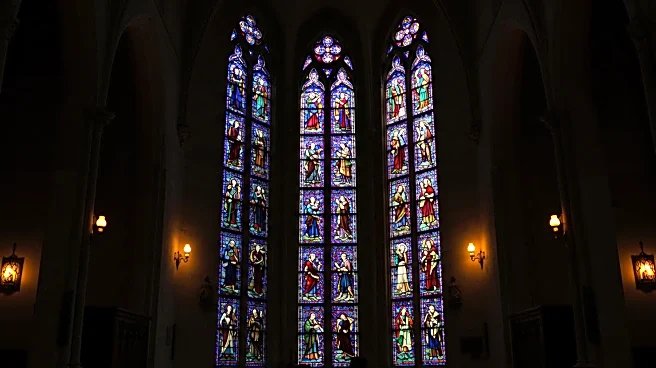What's Happening?
In Washington, D.C., local churches are witnessing a noticeable decline in attendance as congregants express fear over potential immigration actions. This development follows the Trump administration's recent takeover of police operations in the city, which has heightened concerns among worshippers about being detained during church services. The situation reflects broader anxieties within immigrant communities regarding increased enforcement measures and their potential impact on daily life, including religious practices.
Why It's Important?
The decline in church attendance in D.C. highlights the significant impact of immigration policies on community dynamics and religious participation. Churches often serve as vital support networks for immigrant communities, providing not only spiritual guidance but also social and emotional support. The fear of detention could disrupt these networks, leading to increased isolation and stress among affected individuals. This situation underscores the broader societal implications of immigration enforcement, affecting not only those directly targeted but also the institutions that support them.
What's Next?
Church leaders and community advocates may seek to address these concerns by engaging in dialogue with local authorities to ensure the safety and security of congregants. Additionally, there may be efforts to provide legal assistance and resources to those fearing immigration action. The situation could prompt broader discussions on the balance between law enforcement and community trust, potentially influencing future policy decisions at both local and national levels.
Beyond the Headlines
The fear of immigration enforcement in religious settings raises ethical questions about the role of law enforcement in community spaces traditionally seen as sanctuaries. It also highlights the cultural and social challenges faced by immigrant communities in navigating their rights and freedoms in the face of stringent policies. Long-term, this could lead to shifts in how religious institutions engage with and support immigrant populations, potentially altering the landscape of community support systems.









